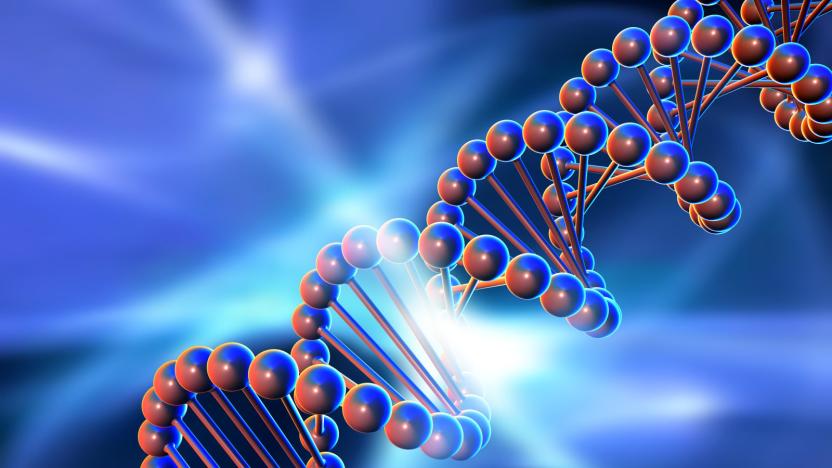dnacomputer
Latest

Scientists prove it's possible to build a DNA computer
Scientists at the University of Manchester, led by Professor Ross D. King, have created a new DNA-based computing device. If you think of DNA as being the code for generating life, then it's not hard to see it as capable of performing other tasks. Just as the four key proteins of DNA can be combined to tell white blood cells to attack infections or grow hair, they could also theoretically be used to analyze massive amounts of climate data... or you know, render a disturbingly realistic Nazi to shoot in the face.

DNA computer solves logical problems, inches closer to practical use
The world of biomolecular computing is hardly a lonely place: bacteria, enzymes, and all manner of chemicals have already been used to perform basic automated tasks. DNA computers are arguably the most advanced organic form of "autonomous programmable computing devices," with one already boasting a pretty tight game of Tic-Tac-Toe. The latest, put together by the Israeli Weizmann Institute, advances things with its ability to correctly respond to problems of logic. By feeding molecular rules and facts into the system, the researchers are able to program DNA strands to produce yes and no answers to basic questions. Programming is said to be technically identical to that used in electronic devices, with a robot compiler converting the programming language into molecular-level information. The ultimate aim of the project is to produce miniscule disease-fighting bots that can battle infections within the human body -- provided the DNA-programming drones don't go all Yul Brynner on us.[Thanks, Karl]
